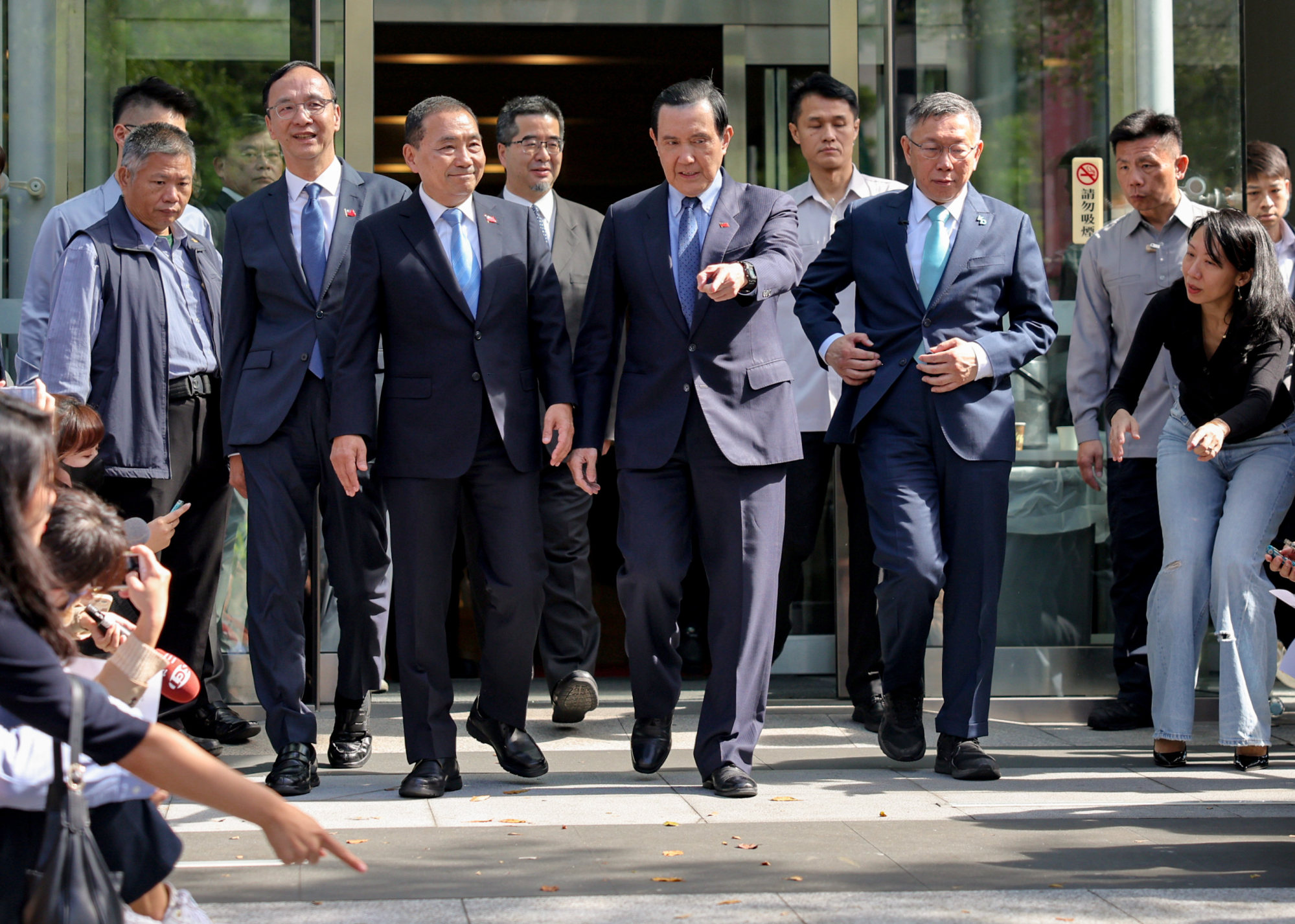Taiwan’s opposition parties agree to joint ticket in presidential race
The move comes as opinion polling suggests a joint opposition ticket will offer the most likely route to defeat the ruling, independence-leaning Democratic Progressive Party. Vice-President William Lai Ching-te, the DPP candidate, has been the front runner in the race since he was nominated in April.
The main opposition Kuomintang and smaller Taiwan People’s Party agreed to the joint ticket in a meeting on Wednesday, with the aim of forming a coalition government next year. It will be the first such cross-party ticket in a Taiwanese presidential election.
They will announce the presidential candidate and their running mate on Saturday, ahead of registration which begins next week.
Also attending were KMT chairman Eric Chu Li-luan and the two parties’ presidential candidates – TPP chairman Ko Wen-je and the KMT’s Hou Yu-ih, mayor of New Taipei City. They met for more than 2½ hours at the Ma Ying-jeou Foundation in Taipei.
Ma, who had touted the joint ticket as the best way to defeat the DPP in the election, said he believed the two sides would work hard to achieve their agreed goal.
The TPP’s Ko said he was looking forward to working towards a coalition government.
“This is a historic moment – never before in Taiwan’s history has a coalition government existed,” Ko said, adding that he hoped the attempt would bring benefits to the island in the future.
KMT chairman Chu said the move was in line with mainstream opinion since polling had shown more than 60 per cent of voters would support a KMT-TPP ticket in next year’s election.
Hou, the KMT’s candidate, called it a “third round of democratic reform” and said the agreement was made for “national security and the people’s well-being”, referring to the DPP’s policy on managing relations with Beijing, which some fear could lead to a conflict across the Taiwan Strait.
“We will come up with a final decision in the next few days on how the two parties should cooperate and we will work together regardless of who is the winner,” Hou said of the decision on who will top the joint ticket.

The parties said in a joint statement after the meeting that they had agreed to hire pollsters to review the results of public opinion surveys conducted between November 7 and 17, as well as internal party surveys. These results will be used to make a decision on who will top the ticket.
They will then work together to help both their presidential and legislative candidates in the elections to be held on January 13.
The statement said that in a future coalition government, the president would take charge of defence, foreign policy and cross-strait affairs. The KMT would be responsible for the island’s development, while the TPP would be there for checks and balances.
Can US and China give each other the reassurances they want on Taiwan?
Can US and China give each other the reassurances they want on Taiwan?
Beijing – which sees self-ruled Taiwan as part of its territory – is expected to welcome the move by the two mainland-friendly opposition parties.
Most opinion polls have shown that a joint ticket headed by either Hou or Ko would fare well against Lai, the DPP’s candidate, and Hsiao Bi-khim, who is seen as his favoured running mate. Hsiao is Taipei’s de facto ambassador to the United States.
Washington is seen as supporting Lai, who has pledged to follow President Tsai Ing-wen’s US-friendly and other policies if elected.





